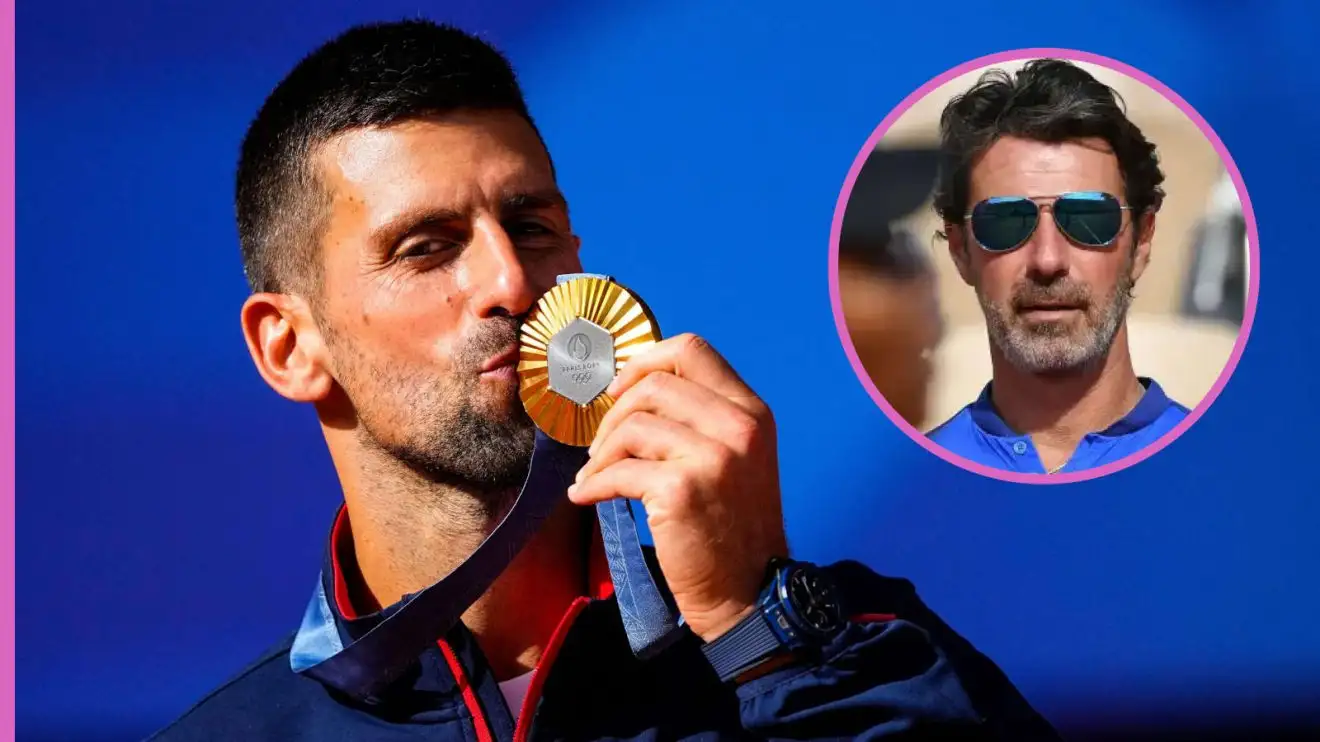
Patrick Mouratoglou, one of tennis’s most well-known and successful coaches, recently shared his thoughts on Novak Djokovic’s career, offering a rare critique of a player widely considered the greatest of all time. Mouratoglou, who has coached the likes of Serena Williams and Stefanos Tsitsipas, is highly respected in the tennis world for his insights. When discussing Djokovic, however, he pointed to one area where he feels the 24-time Grand Slam champion could have potentially improved — his level of aggression on the court.
Djokovic has earned his place in tennis history with an array of remarkable achievements, including holding the record for the most Grand Slam titles in men’s tennis, surpassing both Rafael Nadal and Roger Federer. His dominance over the last decade has been marked by his supreme consistency, incredible mental toughness, and his ability to defend and counterpunch with unrivaled skill. But according to Mouratoglou, Djokovic could have taken his game to even greater heights by being more consistently aggressive.
In an interview with *Talking Tennis*, Mouratoglou was asked what he might have focused on if he had the opportunity to coach Djokovic, a player he reveres as the greatest of all time. “What I think he could have done better, which is tough to say because he’s the greatest of all time, I feel sometimes he’s not aggressive enough in his game,” Mouratoglou commented. It’s a surprising critique, given that Djokovic has showcased both defensive and offensive brilliance throughout his career, often blending the two styles seamlessly.
While Djokovic is known for his defensive qualities — such as his exceptional movement, return of serve, and consistency from the baseline — Mouratoglou believes there were moments when the Serbian could have pushed forward more, taking the ball earlier and stepping inside the baseline. This type of aggression, Mouratoglou argues, would have made Djokovic even more “unplayable” than he already is.
Djokovic’s defensive capabilities are a cornerstone of his success. His ability to cover the court, track down seemingly unreachable shots, and counterpunch his opponents into submission is what many regard as his trademark. Mouratoglou acknowledges this, saying, “He’s probably the guy who covered the court in the best possible way, not only because of his movement but also because of the fact that moving at a very high pace to the sides, he was able to counterpunch. He’s the biggest counterpuncher, I think, of all time.” However, the coach believes that even the greatest counterpuncher needs to balance defense with offense, particularly when it comes to leading rallies.
Mouratoglou suggests that when Djokovic adopts a more aggressive mindset — by stepping into the court, taking the ball earlier, and dictating play — he reaches an almost unbeatable level. He noted, “I think when he moves forward, when he takes the ball a bit earlier, steps inside the court every time he can, then I think he’s almost unplayable.” According to the coach, while Djokovic often rises to the occasion in the biggest matches and employs this tactic, he could have benefited from incorporating this strategy more regularly in his day-to-day approach.
One of the most notable phases of Djokovic’s career where his aggressive play shone through was during his phenomenal 2011 season. That year, Djokovic started with 41 consecutive wins, a streak that highlighted his ability to blend his defensive skills with a more aggressive style of play. During that season, he dominated from the baseline but was also quick to step inside the court when opportunities presented themselves, making it difficult for opponents to find any weaknesses in his game.
Mouratoglou acknowledges that Djokovic has the ability to switch to a more attacking style, particularly in high-stakes moments. “In the biggest matches, most of the time he steps up and does it,” Mouratoglou said, highlighting Djokovic’s capacity to raise his game when it matters most. But he also pointed out that even the best players benefit from making certain tactics a consistent part of their game: “When you do something every single day, when it comes to the big moments, you do it even better.”
Mouratoglou’s analysis underscores the idea that greatness in tennis is often about mastering the fine details. Djokovic’s ability to defend, counterpunch, and remain consistent over long rallies has brought him unparalleled success, but Mouratoglou believes that by pushing forward more often and controlling points early, Djokovic could have been even more dominant.
For a player who has already achieved so much, any critique might seem unnecessary. Yet Mouratoglou’s observation speaks to the thin margins that separate the greatest players in history from their competitors. In a sport where small adjustments can lead to big rewards, Djokovic’s willingness to shift between defense and offense has been a key factor in his long-standing reign at the top. Mouratoglou’s comments are less about criticizing Djokovic’s game and more about offering insight into how even the greatest athletes can find ways to refine and elevate their performance.
As Djokovic continues to add to his already staggering list of achievements, his ability to adapt and evolve will remain a central theme. Whether he chooses to embrace a more aggressive approach more consistently, as Mouratoglou suggests, or stick to the winning formula that has brought him unprecedented success, Djokovic’s legacy as one of the most complete players in tennis history is already secure. However, Mouratoglou’s insights offer a glimpse into the continual process of improvement that even the greatest players pursue.
Leave a Reply